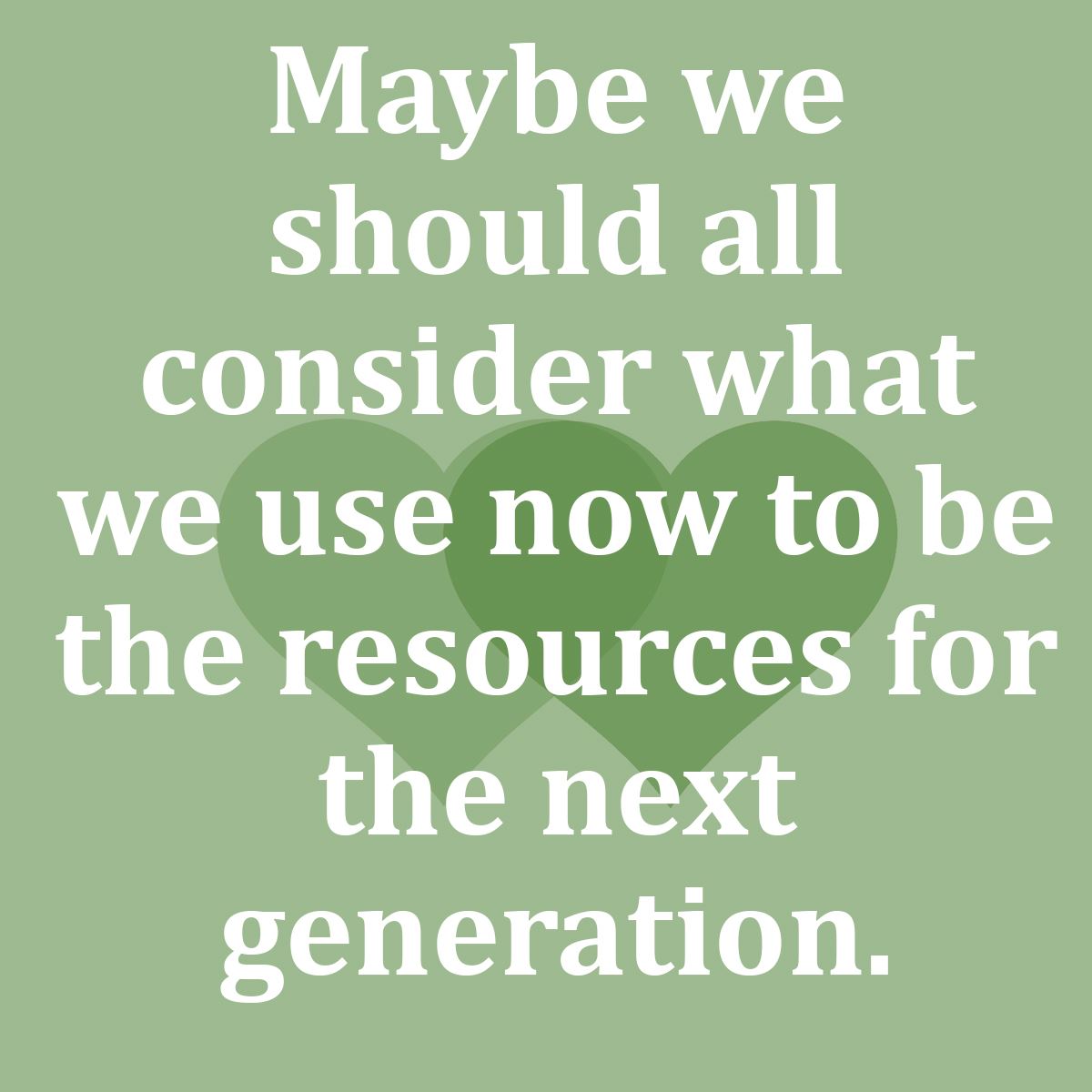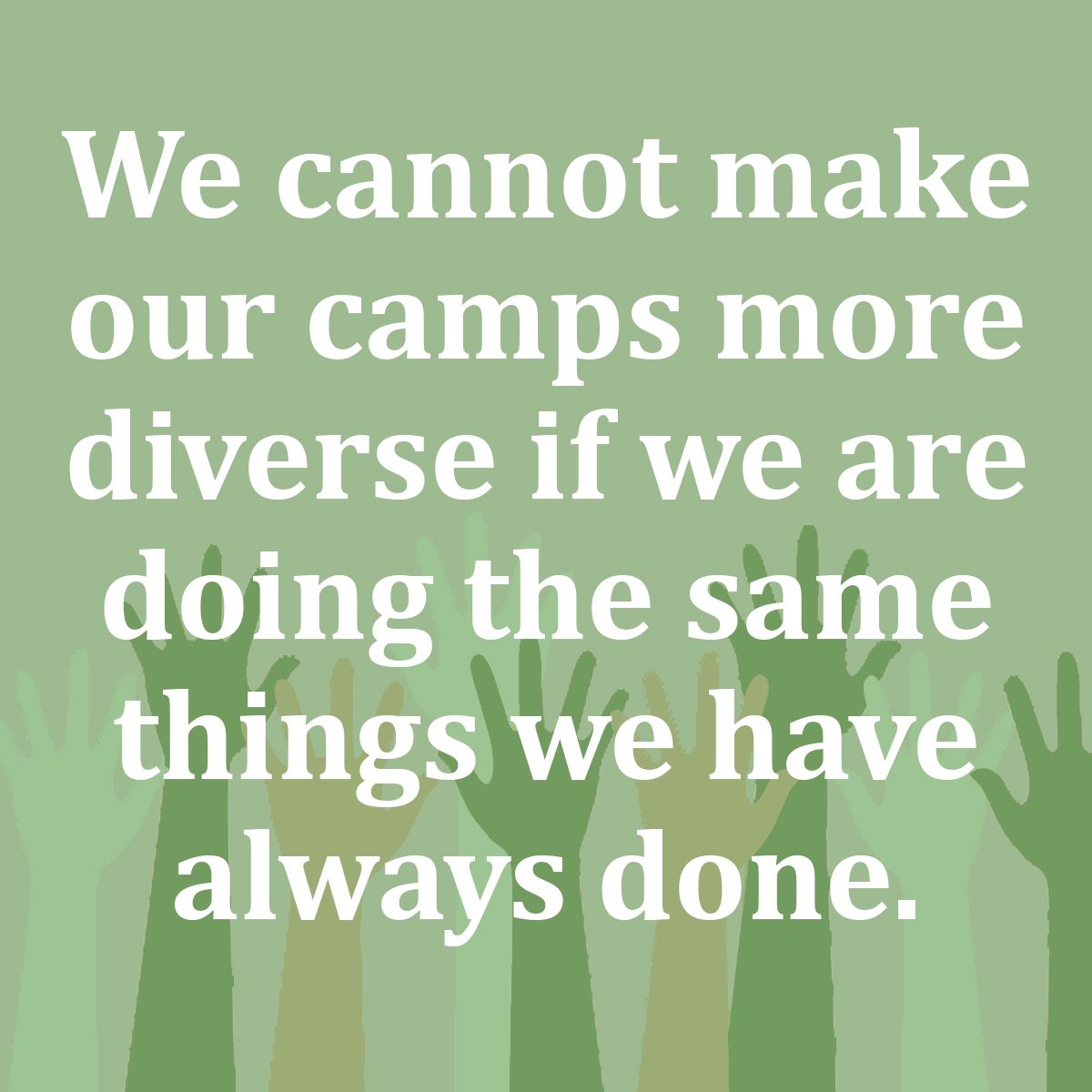Are we really sustaining our pathways?
A reflection on the 2018 Sustainable Pathways event
Every year camping professionals gather to discuss important topics in sustaining our ministries. Some years those topics include marketing, finance, or development. This year, those important topics were a little more hard-hitting. With guest speakers Shane Totten, Kate Mosley, and Niambi Jaha-Echols, 2018 Sustainable Pathways participants explored what it means to really care for God’s Creation and how to build our own inclusive ‘Camptopia’.
We started our day with traveling to the beautiful Calvin Center in Hampton, Georgia. Sessions kicked off with the topic of Creation Care and what it means to be good stewards of our resources. We discussed everything from the lightbulb lighting the storage closet in the dining hall to how you insulate your buildings, and the presenters helped us consider next steps in true stewardship. Shane Totten with Southface Energy Institute and Kate Mosley from Georgia Interfaith Power & Light grabbed the interest of those in attendance with their informative statistics and tips to better our communities.
Lightbulbs, Water Usage, and Waste, Oh My!
Some major topics both Shane and Kate hit on included water usage, energy efficiency, waste control, and air quality. What do these have to do with camping? If you aren’t positive how these things connect with camping, rest assured, they do! How? Glad you asked!
According to Shane, there are quite a few things you can do now to ensure you are taking care of the resources you already have. He suggested starting with light bulbs. By simply changing your light bulbs from incandescent to LED, you will see a great return in energy savings. Have you already made that switch? Maybe consider looking into lighting with sensors. Bri Payne, Executive Director at the John Knox Center, mentioned that switching to occupancy sensor lights has already given them great savings in energy usage.
 Have you noticed that your facility is using more water than it should be? Shane Totten suggested replacing your showerheads to ones that use less water. Being good stewards of our resources means turning off the light when you leave a room or thinking twice about water usage. Maybe we should all consider what we use now to be the resources for the next generation. What we are using now is what will end up in landfills or at recycling facilities. Are you okay knowing that those things could either help or hinder the next generation?
Have you noticed that your facility is using more water than it should be? Shane Totten suggested replacing your showerheads to ones that use less water. Being good stewards of our resources means turning off the light when you leave a room or thinking twice about water usage. Maybe we should all consider what we use now to be the resources for the next generation. What we are using now is what will end up in landfills or at recycling facilities. Are you okay knowing that those things could either help or hinder the next generation?
Shane shared a few statistics that will surely blow your mind. 133 billion pounds of food is wasted per year. Does your camp use a buffet line or serve family style? How can you cut back on food waste? 40% of the food prepared in the U.S. is never consumed. This means that we are eating only a little over half of what we prepare! Where is all that wasted food going? Hopefully that uneaten food is going into some sort of compost, but Shane shared that one person produces about 4.4 pounds of trash per day. Surely there are some ways your camp community can help cut back on that.
Something Kate Mosley touched on was air quality. Do we really know what is in our products? Do we know what is in the buildings where we serve our campers? According to Kate, there are more air pollutants indoors versus outdoors. Do you know what is in your products, even down to the paint used on the walls? Kate suggests looking for seals on products that validate you are using safe materials. She encourages to look for Green Seal Certified and Greenguard seals.
Kate Mosley also explained the importance of knowing what we are throwing away and why. How do you do this? You facilitate a waste audit. Yes, it sounds time-consuming and not so enjoyable, but very necessary! Think about this: if you don't weigh yourself, how can you maintain yourself? How can you know what you need to put in your body if you don’t already know what is in your body? It works the same with waste. If we aren’t aware of what we are throwing away, how can we adjust what we consume to reduce what we throw away? Kate Mosley suggests using the free Energy Star Portfolio Manager as a place to start.
What about your guests? How can you manage their waste? Kate and Shane both explained the importance of developing a Sustainability Policy at your facility. This could be something as simple as creating a letter you send out to your guests before their stay with a list of things you’d like for them to avoid bringing. Maybe you are planning to cut back on plastic waste so you ask that your guests bring reusable water bottles rather than plastic ones. What about asking your guests to use the plates and cups in the dining hall rather than bringing paper ones, to cut back on paper waste? Starting here can help change the culture at your facility and start making your footprint smaller.
Building the "Camptopia" from the Roots Up
Switching gears to the second portion of the conference, we dove into another topic that is sometimes hard to navigate: Diversity. Niambi Jaha-Echols from Cross-Cultural Agility joined the conference for the second half to share her insights on creating the perfect ‘camptopia’. How do we do that? Niambi started at the roots. After sharing where the word ‘camp’ comes from, Niambi explained exactly what it means. The word ‘camp’ comes from the Greek word ‘campus’ meaning level ground. Niambi suggested that we do just that and get back to level ground in the camping world. Niambi uses the phrase, ‘Intentional Community Building,’ meaning that inclusion in our camp communities isn’t what we do but who we are. She quoted Albert Einstein, saying that “we cannot solve a problem at the same level that it was created.” This simply means that we cannot make our camps more culturally diverse if we are doing the same things we have always done.
 People generally like to be with people who are like us. We all have our own culture, and those personal differences play an important role in understanding culture. Niambi used an example of a vehicle to vividly illustrate this. If someone gets into a wreck, we are typically more concerned with what is in the car than the car itself. What if we would imagine our skin as the “vehicle” in this metaphor? Niambi called her skin her "skin suit," making the point that the outside is only a covering for the more important contents inside. Our culture goes much deeper than our skin tone. Our "skin suit" is just for this lifetime, not for eternity.
People generally like to be with people who are like us. We all have our own culture, and those personal differences play an important role in understanding culture. Niambi used an example of a vehicle to vividly illustrate this. If someone gets into a wreck, we are typically more concerned with what is in the car than the car itself. What if we would imagine our skin as the “vehicle” in this metaphor? Niambi called her skin her "skin suit," making the point that the outside is only a covering for the more important contents inside. Our culture goes much deeper than our skin tone. Our "skin suit" is just for this lifetime, not for eternity.
Have you ever caught yourself adding new decorations or fresh flowers to a room in your home to ‘add some color’ or ‘change it up’? What happens to those fresh flowers? They usually die, right? Why do they die? They die because they aren’t rooted in our home. Niambi used this painfully accurate example to explain why it is so important to make sure all people feel rooted in our camping environments. If you plop something into a new environment just to mix it up, it won’t survive. We have to intentionally add to our camping environments to make space for all cultures to root; otherwise they will not thrive in our communities. We have to think outside of the box so we don't get trapped in our cultural boxes.
While these topics are large and daunting, it is helpful to remember that these changes cannot happen overnight, and that is okay! Changes may be necessary, but they also take time, so start small and work your way to what is best for your facility and ministry. As Burt Goldman says, “There is only one way to get dark out of a room, and that is to let light in.” Whether that light is literal light from the lightbulbs you replaced to save energy, or the light of new cultures, let it in. Let that light in and let it shine bright, because we are in the business of changing lives for the better.
Paige Railey is the Marketing Director for South Carolina Camps & Retreat Ministries. We’re grateful for her contributions to the UMCRM blog and for allowing those who couldn’t attend this year’s Sustainable Pathways to get a glimpse into the important topics featured. Thanks, Paige!



